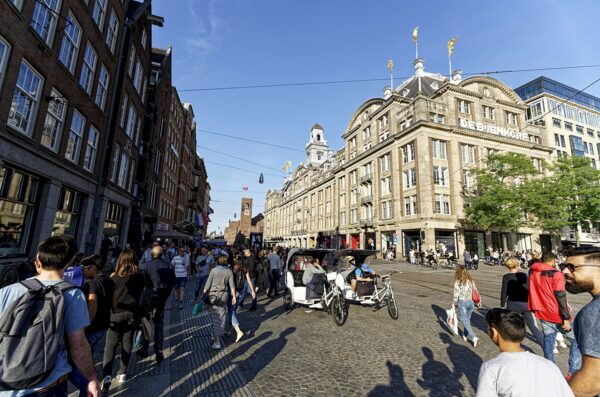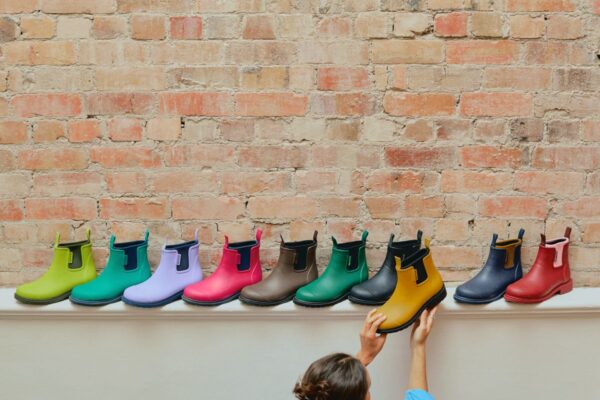
Bira CEO, Andrew Goodacre, is calling for small independent shops to reopen during the first phase of lifting lockdown restrictions outlined in government documents released on Tuesday May 11, saying: “Independent retail businesses can offer a safe shopping environment and will help keep people within their local communities”.
Andrew says small shops help to keep people within their local communities, rather than requiring them to travel to retail parks and larger stores. New research from Springboard has found that while visits to high streets across the country fell by more than 80% in April, there was also a shift from larger shopping hubs to smaller, more local centres.
“Many essential small shops have continued to trade in a safe way, and we have seen the virus bought under control as a result, he added, saying “they are responsible retailers who do look after their people and customers. Safety of employees and customers is what is essential. Social distancing will remain in place, and all business will have to make adjustments.”
Bira has issued a set of guidlines to help retailers get ready to open up their shops again.

Mr Goodacre has reflected on the challenges faced by the industry, writing: “When faced with the day-to-day problems of managing a business that is closed and no cash coming in, it can be difficult for a retailer to think about life after lockdown. However, that’s exactly what everyone in retail has to do, none more so than the independent retailers at the heart of every good high street.
Primarily, we must accept that going ‘back to normal’ is not an option. The way Covid-19 has disrupted our daily lives and businesses in all sectors, suggests that a ‘new normal’ is being established. The growth of internet shopping has accelerated due the closure of shops and it is unlikely to return to pre-crisis levels. Working from home will become the norm – although I think it will present a more flexible working model with people dividing time between home and office. Either way, midweek footfall in shopping hubs will be reduced. Consumer confidence will be low for some time due to ongoing health concerns and the economic repercussions of the virus. And until there is medical treatment for the virus, any easing of restrictions will need to be done in phases to avoid the likelihood of a second wave of infections and deaths. A protracted period of uncertainty is likely to keep all-important footfall at lower levels.
Retailers themselves must take control of their own destiny but certain measures are expected of the Government.
A clear exit strategy is needed with the opening of smaller shops taking priority. We should learn from steps being taken in Europe as countries there exit lockdown.
Financial stimulus to entice people back to the shops and generate consumer confidence. VAT has been used in the past as such a stimulus and should be done again over the summer.
The furlough scheme should be extended but at lower levels to avoid a ‘hard exit’ from lockdown. With footfall reduced, sales in shop will decrease, and there will be temptation for retailers to make staff redundant or not open at all, judging it uneconomic to do so.
Reopening the high streets needs to be done in conjunction with schools and increased levels of public transport.
Town centre managers, Business Improvement Districts (BIDS), local authorities and retailers must work together to accelerate plans for changing towns. Retail was already under pressure but there was not enough cohesive thinking behind the improvement plans. Clarity of thought and more ambitious schemes are essential.
From a retailer perspective, the strength of an independent business has been the ability to change and meet consumer demand quickly. We can learn from the businesses that have successfully traded through this crisis (as essential retailers). Given the acceleration of some of the socio-economic changes we need to see:
Multi-channel sales: Retailers move towards omni channel retailing. Some have been doing it well but many more now need to embrace technology and, ultimately, opportunity. We have seen some members do this well, using social media and internet marketplaces to promote their business. This will require investment in good technology, including effective point of sale (POS).
Customer first: Adopt a more customer-focused approach. Retailers have been offering deliveries, click-and-collect and improved community engagement. This crisis has enforced a stronger sense of community, presenting an opportunity for the independent retailer often at the heart of it.
Sustainable retail: This was a growing trend prior to the crisis, and it will be even stronger post-crisis. If anything, there will be a greater focus on environmental issues as we start to benefit from less pollution (due to less industrial activity, less traffic, etc), although single-use plastic has made a bit of a comeback! Retailers who introduce sustainable retailing into their business will differentiate themselves and appeal to a wider generation of consumers.
Focus on customer experience: As time goes by footfall will increase and interest in visiting the high street will return. Retailers (and their employees) must appreciate the need for giving an ‘experience’ to the consumer – engagement, knowledge, different products.
Be brave: Work together and take advantage of available support. There will be many new ideas introduced into the world of retailing – some will work and some won’t. Could a clothes shop do a fashion show via the House Party app? Can a cook shop do a demonstration via Zoom? Be brave!
Unfortunately, there are some businesses that won’t survive. Retail was changing in any case. Covid-19 has bought together communities and, as I have said, I believe the independent retailer is the heart of every good high street. With a bit of luck and a lot of the creative, entrepreneurial flair that has always been part of successful retailing, I am confident that the ‘indie’ will continue to serve its consumer.
And finally there is one thing that can shorten the period of consumer uncertainty and that is a vaccine or effective treatment for Covid-19. Governments around the world must work to deliver this solution, and then we can all move forward a lot quicker.
















